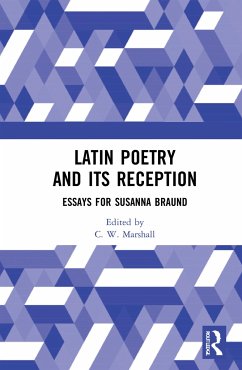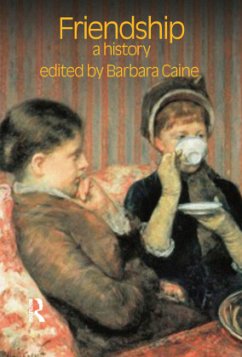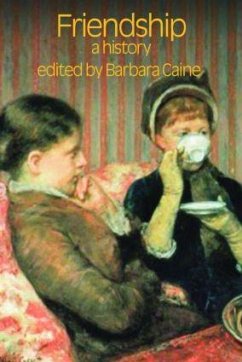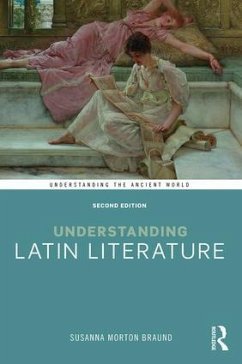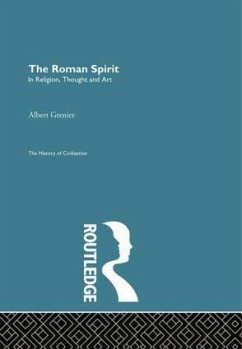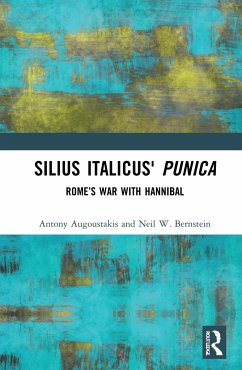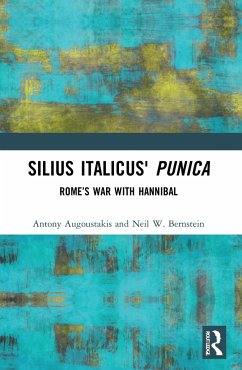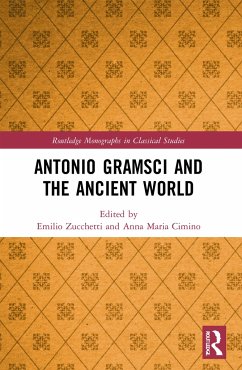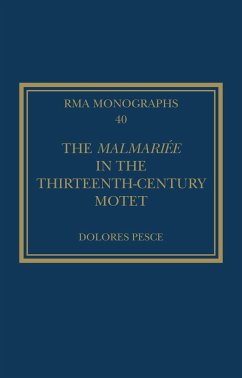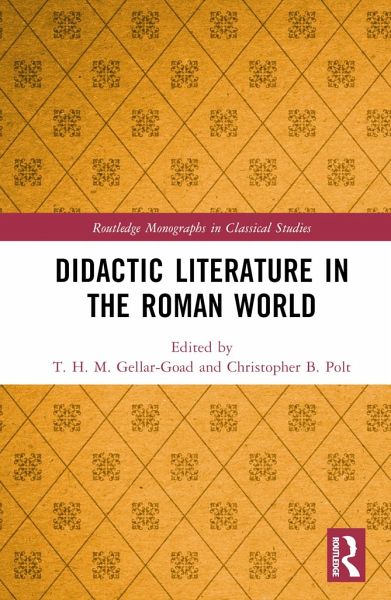
Didactic Literature in the Roman World
Versandkostenfrei!
Versandfertig in 6-10 Tagen
149,99 €
inkl. MwSt.

PAYBACK Punkte
75 °P sammeln!
This book collects new work on Latin didactic poetry and prose in the late Republic and early Empire, and it evaluates the varied, shifting roles that literature of teaching and learning played during this period.Instruction was of special interest in the culture and literature of the late Roman Republic and the Age of Augustus, as attitudes towards education found complex, fluid, and multivalent expressions. The era saw a didactic boom, a cottage industry whose surviving authors include Vergil, Lucretius, Ovid, Horace, Cicero, Varro, Germanicus, and Grattius, who are all reexamined here. The ...
This book collects new work on Latin didactic poetry and prose in the late Republic and early Empire, and it evaluates the varied, shifting roles that literature of teaching and learning played during this period.
Instruction was of special interest in the culture and literature of the late Roman Republic and the Age of Augustus, as attitudes towards education found complex, fluid, and multivalent expressions. The era saw a didactic boom, a cottage industry whose surviving authors include Vergil, Lucretius, Ovid, Horace, Cicero, Varro, Germanicus, and Grattius, who are all reexamined here. The contributors to this volume bring fresh approaches to the study of educational literature from the end of the Roman Republic and early Empire, and their essays discover unexpected connections between familiar authors. Chapters explore, interrogate, and revise some aspect of our understanding of these generic and modal boundaries, while considering understudied points of contact between art and education, poetry and prose, and literature and philosophy, among others. Altogether, the volume shows how lively, experimental, and intertextual the didactic ethos of this period is, and how deeply it engages with social, political, and philosophical questions that are of critical importance to contemporary Rome and of enduring interest into the modern world.
Didactic Literature in the Roman World is of interest to students and scholars of Latin literature, particularly the late Republic and early Empire, and of Classics more broadly. In addition, the volume's focus on didactic poetry and prose appeals to those working on literature outside of Classics and on intellectual history.
Instruction was of special interest in the culture and literature of the late Roman Republic and the Age of Augustus, as attitudes towards education found complex, fluid, and multivalent expressions. The era saw a didactic boom, a cottage industry whose surviving authors include Vergil, Lucretius, Ovid, Horace, Cicero, Varro, Germanicus, and Grattius, who are all reexamined here. The contributors to this volume bring fresh approaches to the study of educational literature from the end of the Roman Republic and early Empire, and their essays discover unexpected connections between familiar authors. Chapters explore, interrogate, and revise some aspect of our understanding of these generic and modal boundaries, while considering understudied points of contact between art and education, poetry and prose, and literature and philosophy, among others. Altogether, the volume shows how lively, experimental, and intertextual the didactic ethos of this period is, and how deeply it engages with social, political, and philosophical questions that are of critical importance to contemporary Rome and of enduring interest into the modern world.
Didactic Literature in the Roman World is of interest to students and scholars of Latin literature, particularly the late Republic and early Empire, and of Classics more broadly. In addition, the volume's focus on didactic poetry and prose appeals to those working on literature outside of Classics and on intellectual history.





